 W
WMohamed Hedi El Amri was a Tunisian historian and writer.
 W
WEdmund la Touche Armstrong (1864–1946) was an Australian historian and librarian.
 W
WDana Rebecca Arnold is professor of architectural history and theory at the University of Middlesex, UK where she is currently director of the Centre for Ideas. From 1999 to 2012 she was professor in architectural history at the University of Southampton UK. Arnold was a guest professor at Tianjin University in China, and honorary professor at the Middle East Technical University in Ankara, Turkey. She has published books, essays and articles on architecture, architectural history, imperialism and historiography. Arnold describes her research as a renegotiation of the boundaries of architectural history; to critically engage with past and present histories and disclose latent assumptions about ‘east’ and ‘west’ through the biases and absences in the writing of architectural and cultural histories.
 W
WDantès Bellegarde was a Haitian historian and diplomat. He is best known for his works Histoire du Peuple Haïtien (1953), La Résistance Haïtienne (1937), Haïti et ses Problèmes (1943), and Pour une Haïti Heureuse (1928–1929).
 W
WVasily Alexeyevich Bilbasov was a Russian Empire historian, editor and publicist, the greatest authority on the rule of Catherine the Great of his time. His magnum opus, the fundamental History of Catherine the Second, published in 1890, and revealing aspects of the great Russian ruler's life that had been hitherto unknown, caused furore, the second volume of it in 1891 was banned. By 1896, two more volumes of the treatise came out, but it remained unfinished.
 W
WEdmund Bohan is a New Zealand historian, biographer, novelist, singer, and author.
 W
WLouis Félix Mathurin Boisrond-Tonnerre, better known as simply Boisrond-Tonnerre, was a Haitian writer and historian who is best known for having served as Jean-Jacques Dessalines' secretary. Boisrond-Tonnerre was educated in Paris until 1798 when he returned to Haiti. He is the author of the 1804 Independence Act of Haiti, which formally declared Haiti's independence from the colonial rule of France. He is also known for his work chronicling the Haitian Revolution, Mémoires pour Servir à l'Histoire d'Haïti.
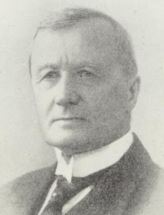 W
WAndreas Brandrud was a Norwegian church historian.
 W
WRobert Vance Bruce was an American historian specializing in the American Civil War, who won the 1988 Pulitzer Prize for History for his book The Launching of Modern American Science, 1846–1876 (1987). After serving in the Army during World War II, Bruce graduated from the University of New Hampshire, where he earned his Bachelor of Science in mechanical engineering. He received his Master of Arts in history and his Doctor of Philosophy from Boston University, where he was later a professor. He also taught at the University of Bridgeport, Lawrence Academy at Groton, and the University of Wisconsin. Bruce was also a lecturer at the Fortenbaugh Lecture at Gettysburg College.
 W
WLeonard C. Bruno was the Science Manuscript Historian and subject specialist in the Manuscript Division at the Library of Congress. Amongst his books are reference guides to the library's collections in the history of science. After more than forty years of service at the Library of Congress he retired in June 2012.
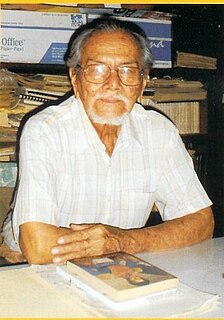 W
WHerminio Wenceslao Chávez Guerrero was a Mexican teacher, historian, man of letters, and playwright. His works and teaching activities earned him many awards nationally and internationally.
 W
WJohn Tyler Christian (1854–1925) was a Baptist preacher, author and educator.
 W
WEnrico Decleva was an Italian historian.
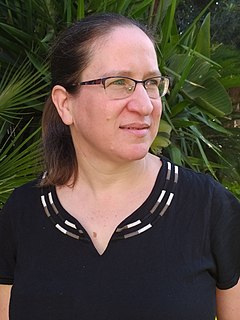 W
WHavi (Hava) Dreifuss is a professor of history at the University of Tel Aviv and head of the Center for Research on the Holocaust in Poland at Yad Vashem. She specializes in the history of the Holocaust in Poland and Polish-Jewish relations during World War II.
 W
WAlan John Forey is reader emeritus in history at the University of Durham and an authority on the history of the military orders of the middle ages. In 1994, his work was collected and published in the Variorum Collected Studies series as Military Orders and Crusades.
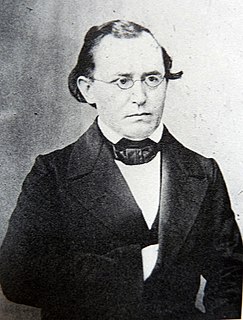 W
WFranz Hermann Reinhold von Frank was a German theologian born in Altenburg. He was an important figure in the "Erlangen School" of the German Neo-Lutheranism movement, and a specialist in theological dogmatics.
 W
WRoger Gaillard was a Haitian historian and novelist. Born in Port-au-Prince, Gaillard earned a philosophy degree at the University of Paris in France. He is best known for his multiple-volume chronicle of the United States' occupation of Haiti.
 W
W(Prop) Preller Geldenhuys was a pilot in the Rhodesian Air Force. He left Rhodesia in 1982 and began a new career in South Africa. After retiring, he became an author.
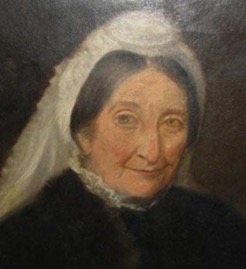 W
WElizabeth Caroline Hamilton Gray was a Scottish historian and travel author, born in Alva, Clackmannanshire, as the eldest daughter of James Raymond Johnstone and granddaughter of the colonial businessman John Johnstone. After marrying John Hamilton Gray, a priest and genealogist, in June 1829, Gray moved to Bolsover Castle in England, where she lived until shortly before her death.
 W
WCraig Edward Harline is a professor of history at Brigham Young University (BYU) and an author of several books. His research has focused on lived religion during the Reformation.
 W
WGyula Hornyánszky, was a Hungarian classical scholar and member of the Hungarian Academy of Sciences.
 W
WMubarak Ibn Ahmad Sharaf al-Din Ibn al-Mustawfi al-Lakhmi al-Irbili, a famous Muslim historian of Erbil, who was born in the ancient citadel of Erbil. He has written in several areas, history, literature and language. His masterpiece is a four volumes book of.
 W
WRev. Albert Augustus Isaacs was a British clergyman, historian and anthropologist, specialising in the history of the Jews and Arabs in the Middle East, as well as an amateur photographer who took some of the earliest images of the Holy Land. Of major note is his biography of the Reverend Henry Aaron Stern (1820–1885), published in 1886, who for more than forty years was a missionary amongst the Jews. The book contains an account of his labors and travels in Mesopotamia, Persia, Arabia, Turkey, Abyssinia, and England.
 W
WBohdan Krawchenko is the former director of the Canadian Institute of Ukrainian Studies and former vice-rector of the National Academy for Public Administration under the President of Ukraine in Kyiv, Ukraine. In 1991, Dr. Krawchenko moved to Ukraine to become Director of Policy Studies at the Council of Advisors to the Parliament of Ukraine, and 1992 became the founder and director of the Institute of Public Administration and Local Government, Cabinet of Ministers. In 1995 the Institute was re-organised into the Academy of Public Administration, Office of the President of Ukraine and he was appointed vice-rector for academic development and Director of the Centre for the Study of Administration Reform. Dr. Krawchenko participated in numerous Ukrainian government committees, task forces, and working groups. These include the President's Council on Social and Economic Affairs, the Policy Unit of the Cabinet of Ministers, the Working Group on the Establishment of the Civil Service, the Working Group on Monetary Reform, and the Commission on Administrative Reform. He has also served as a consultant to the World Bank and OECD. He was visiting associate professor at Harvard University, Department of Government, and visiting professor at the College of Europe in Natolin, Poland. In 1995 he received an honorary doctorate from the University of North London, in 1997 was made an honorary professor of the University of ‘Kyiv-Mohyla Academy’, in 2000 received an honorary doctorate from the Ukrainian Academy of Public Administration, and in 2000 was awarded an Order of Merit from the President of Ukraine. Dr Krawchenko was editor of “Occasional Papers in Public Administration and Public Policy” published by the Network of Institutes and Schools of Public Administration in Central and Eastern Europe, and a member of international editorial boards of several journals among them Public Management and Journal of Comparative Policy Analysis.
 W
WMathilde Laigle was a French historian. She was an early student in America becoming a governess to the children of the governor of Iowa. She was an expert on Christine de Pizan and is credited with helping to revive interest in the early feminist.
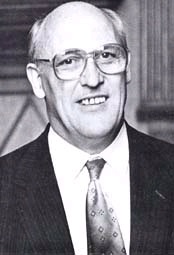 W
WJ. Douglas MacMillan was a British Christian minister in the Free Church of Scotland.
 W
WKároly Marót, was a Hungarian classical scholar, philologist and member of the Hungarian Academy of Sciences.
 W
WVirginia McCord Mecklenburg is the Senior Curator of painting and sculpture at the Smithsonian American Art Museum. She has been a curator at the Smithsonian since 1979 and has organized more than twenty exhibits. Additionally, she has published works regarding the art and lives of artists such as Edward Hopper, Frederick Carl Frieseke, George Bellows, and others.
 W
WJohann Jakob Merlo was a German historian, antiquarian and poet.
 W
WDean Arthur Miller was an American historian who was Professor of History at the University of Rochester. He specialized in the classics, Celtic studies and Indo-European studies, with a particular focus on Heroic poetry.
 W
WGyula (Julius) Moravcsik, who usually wrote just as Gy. Moravcsik, was a Hungarian professor of Greek philology and Byzantine history who in 1967 was awarded the Pour le Mérite for Sciences and Arts.
 W
WHorace Pauleus Sannon was a Haitian historian, politician and diplomat.
 W
WBertrand Perz is an Austrian academic who is known for his research into Mauthausen concentration camp.
 W
WCaspar Jacobsz Philips, was an 18th-century engraver and architectural historian of the Northern Netherlands.
 W
WNil Alexandrovich Popov was a Russian historian, slavist, philologist and archivist, a major authority on the history of West Slavs. A professor at Moscow University, and a corresponding member of the Saint Petersburg Academy of Sciences, Popov published numerous acclaimed works on the history of Serbia, Bulgaria, and Poland. His doctorate study, "Russia and Serbia. 1806-1856" earned him the Uvarov Prize. In 1864 Popov became the head of the Moscow Slavic Committee. He was also the head of the Archive Committee of the Ministry of Justice and the chairman of the ethnography department at the Society of Devotees of Natural Science, Anthropology, and Ethnography. Professor Vasily Klyuchevsky described Popov as "one of the last major figures from the Golden age of Moscow University."
 W
WMiodrag Popović was a Yugoslav and Serbian historian.
 W
WDr. Iswari Prasad Upadhyaya was an Indian historian. He was an alumnus of Aligarh Muslim University, and very first graduate of the university. He dealt mainly with the Muslim rulers and governments of India, especially with the Mughal and Tughluq dynasties. He did extensive work on rulers such as Muhammad bin Tughluq, the Sultan of Delhi, Humayun, and Aurangzeb.
 W
WUlrich of Richenthal was a chronicler of the Council of Constance.
 W
WWilliam George Searle (1829–1913) was a 19th-century British historian and a fellow of Queens' College, Cambridge,
 W
WCarlos Andrés Segovia y Corral, 2nd Marquis of Salobreña is a Spanish nobleman and academic specialising in philosophy and religious studies.
 W
WJesús Silva Herzog was a Mexican economist and historian specialized in the Mexican Revolution and a member of The National College. He received the National Prize for Arts and Sciences in 1962. His son, former Mexican Secretary of Finance Jesús Silva Herzog Flores, and grandson, Jesús Silva Herzog Márquez, are also prominent men in Mexico's political and intellectual life.
 W
WVasily Dmitriyevich Sipovsky was a Russian historian, journalist, editor, and pedagogue, personal history tutor for Grand Duchess Xenia Alexandrovna and Grand Duke Michael Alexandrovich.
 W
WHelen Szamuely was a historian and Eurosceptic who was a researcher for the Bruges Group and founder of the Anti-Federalist League. She was the daughter of Tibor Szamuely. She translated Abel Aganbegyan's book Moving the Mountain: Inside the Perestroika Revolution from Russian to English. After the Maastricht Treaty was signed in 1992, she organised monthly meetings at the Red Lion near Parliament to discuss Europe.
 W
WMarjorie Jean Tipping MBE (1917–2009) was an Australian historian and patron of community services.
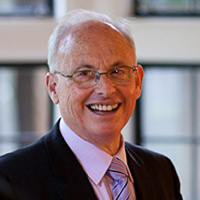 W
WRichard W. Unger is a professor of Medieval History at the University of British Columbia and a specialist in European maritime history in the medieval period. He served as Second Vice-President of the Medieval Academy of America in 2011, First Vice-President in 2012, and President in 2013.
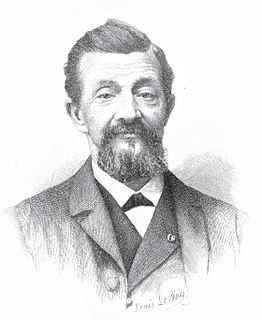 W
WAlphonse Wauters (1817–1898) was a Belgian archivist and historian.